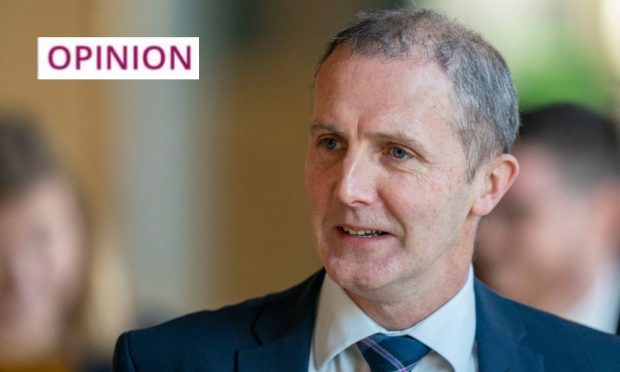It is no wonder the SNP government is said to be on a fast-track to bankruptcy given the cavalier way in which it spends taxpayers’ money.
This is not just a reference to Michael Matheson’s iPad debacle, although the hapless health secretary does provide a useful case in point.
It emerged earlier this week the public had to cover almost £11,000 in roaming charges for the SNP minister, racked up while he was sunning himself on holiday in Morocco.
There are, of course, legitimate questions to be asked about what Matheson was doing to cause such an exorbitant bill, why he could not have used Wi-Fi, and why – if that proved impossible – the Scottish Parliament had not negotiated an appropriate tariff for the use of roaming services abroad.
At the very least, there must be an investigation into what has happened here and, in the interests of public trust in politicians if nothing else, Matheson – as the primarily responsible party – should offer to cover the cost himself.
After all, when the health secretary’s monthly mobile phone bill could pay for half a dozen cataract operations, even the SNP government must recognise something has gone badly wrong.
But this individual saga is merely a useful illustration of what is a deeper problem around the SNP government and its relationship with public money.
‘Profligate with public funds’
It is one that was identified by the Scottish Parliament’s Finance and Public Administration Committee earlier this week, when they chastised the nationalist regime for taking a “short-term approach to financial planning”, adding that SNP ministers had little interest in “affordability”.
This is, of course, couched in the politeness and euphemism of parliamentary language.
The committee, after all, contains three SNP MSPs – including a nationalist convener – and its reports have to be agreed by all members.
But the meaning of their report was clear: the SNP government is profligate with public funds and shows little sign of changing course.
As a taxpayer this is extremely frustrating, but not extremely surprising.
The SNP has, as we know all too well, long had a duplicitous relationship with economic truth.
It is the party that claimed Scotland could become an independent country within 18 months, despite not having any answer on what currency it would use or how its public finances would be sustained.
It is the party that brought us Ferguson Marine, and hundreds of millions wasted on ferries that, years later, are still not operational.
It is the party that, despite making Scotland the highest taxed part of the UK, has still somehow managed to engineer a £1billion black hole in the public finances.
The unfortunate reality is that this situation will get worse before it gets better, with only a new government at Holyrood likely to have the authority to deliver the cultural change Scotland’s public finances need.
Just as First Minister Humza Yousaf is too weak to chastise Matheson for his personal profligacy, so too is he too weak to change the Scottish Government’s culture of extravagance.
SNP extravagance
From the SNP leader down, nationalist ministers are addicted to making uncosted, unaffordable promises that leave public finances in an ever-worse state.
There are many competitors for the area of government that has suffered most after 16 years of SNP mismanagement but the damage done to public finances is a worthy challenger.
Just as the next government at Westminster is likely to face a difficult financial outlook, so too will the next government at Holyrood have to wrestle with the consequences of SNP extravagance – and that is even before we see the cost of Michael Matheson’s next phone bill.












Conversation